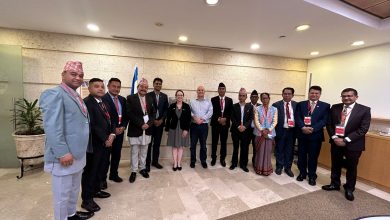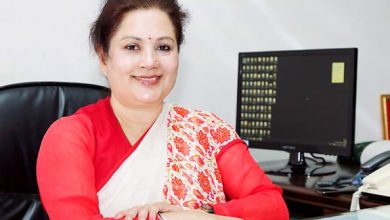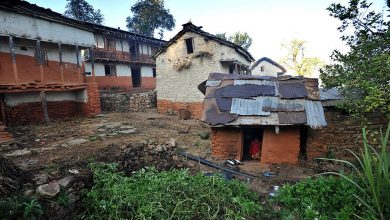Govt urged to maximize benefits from upcoming Sixth Asian Population Conference
Kathmandu, Oct 4: Stakeholders have called on the government to maximize benefits from the Sixth Asian Population Conference scheduled to take place in Kathmandu on coming 27-30 November, to address the country’s rapid changing demographics and aging population.
As outcomes of the conference, Nepal could develop policies relating to demographic transitions, and tap the potentials of its demographic window of opportunity, they suggested at a press meet today in Kathmandu in the run-up to the Conference.
As Nepal is rapidly progressing towards an ageing society, with the old age population (65 or above) accounting for 6.9 percent of the total population according to the latest 2021 census, they emphasized an urgent need for developing strategies to address the challenges associated, and grab the opportunities offered by a working-age population.
As the conference will bring together renowned demographers, researchers and experts from around the globe, this could be an opportunity for Nepal to exchange knowledge and insights on population-related issues, said Prof Dr Yogendra Bahadur Gurung, Head of the Central Department of Population Studies, Tribhuvan University.
Highlighting the importance of population as a resource and driver of development, he urged the government to prioritize this area.
Similarly, Dr Padma Prasad Khatiwada, President of the Population Association of Nepal, warned of the implications of decreasing population growth, underlining the need of the country’s preparedness for the associated challenges.
Bhishma Adhikari, member of the National Forum of Parliamentarians on Population and Development, encouraged Nepal’s state bodies, stakeholders and other related people to participate in the Conference, which could provide an opportunity for Nepal to become a hub for similar events.
According to the organizers, the conference will provide an opportunity for countries to learn about the implications of population transformation for social and economic welfare and interrelationship among social, economic and demographic components, and draw on the recent demographic data and analysis to examine specific issues of population.
As Asia, a very heterogeneous region with a diverse population, is facing challenges like demographic dynamics in fertility, mortality and migration, demographic transition, and age-sex structure, the event is expected to prove significant.
As the event coincides with the 30th anniversary of the International Conference on Population and Development (ICPD) in 2024, Dr Gurung said this will be an appropriate forum to discuss, revisit and re-plan population and development issues in the Asian region, including Nepal.
Additionally, the event aims to support Nepal’s efforts to achieve SDGs by 2030, offering an opportunity for the government and development partners to revisit their progress on SDGs, and strategize their future plans based on learnings from participating countries.
Co-organized by the Asian Population Association (APA) and the Central Department of Population Studies, TU in collaboration with five other organizations, the event is expected to attract over 500 representatives from around 50 countries, discussing the global demographic situation, demographic trend and its political, social, and economic impacts, and demographic challenges and opportunities for developed and developing countries.
Around 400 working papers on various 17 themes will be presented, and a “Nepal Special Session” will be conducted where discussions will focus on Nepal’s demographics. The venue for the event is Soaltee Hotel and the estimated cost is around Rs 50 million. Registration fees range from Rs 7,000 to Rs 40,000, depending on participants’ status.
Previously, the conferences were held in New Delhi (2010), Bangkok (2012), Kuala Lumpur (2015), Shanghai (2018), and Indonesia (2021).









Comments